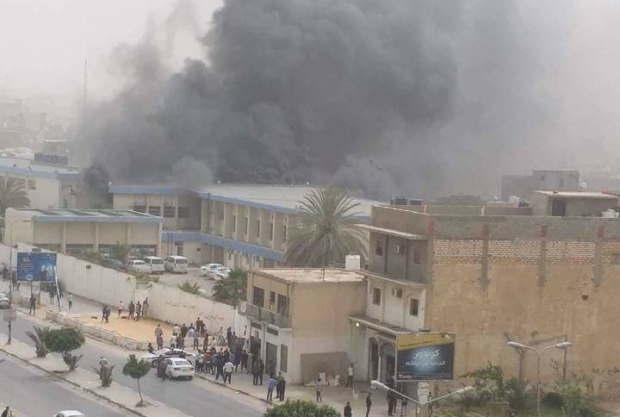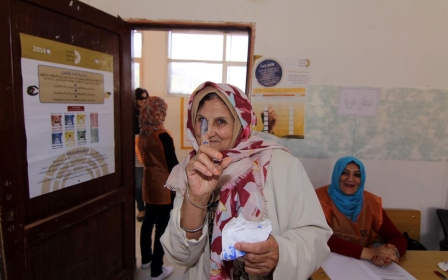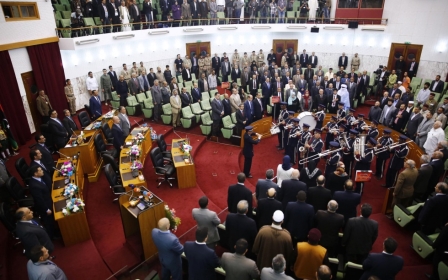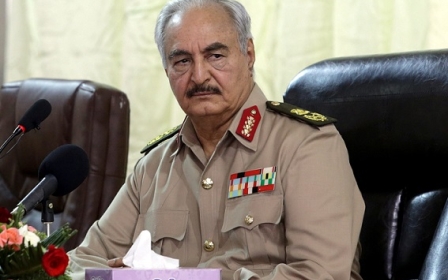Libya election officials killed in Tripoli suicide blast claimed by IS
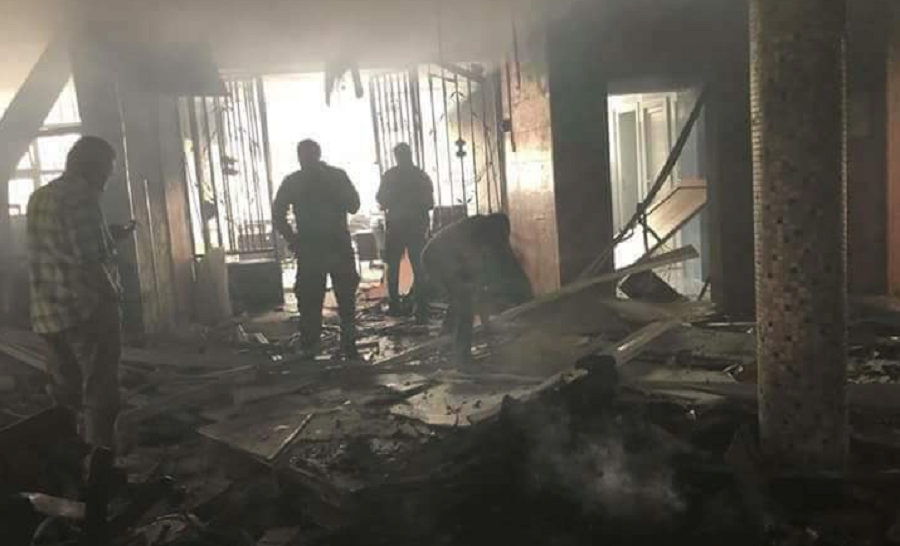
At least 12 people have been reported killed on Wednesday as armed militants including at least one suicide bomber stormed the offices of the Libyan electoral commission in Tripoli in an attack claimed by Islamic State.
The attackers set the building ablaze, according to spokesman Khaled Amar, who fled with other staff following the attack. Reports said the gunmen then engaged security forces in a street battle.
The Islamic State claimed the attack through its Amaq propaganda wing but did not provide any evidence for its claim.
Images and video shared on social media showed pillars of thick smoke rising from the site.
The victims included three employees of the commission and four members of local security forces, said Amar.
"I saw two suicide bombers myself... they were shouting Allahu Akbar (God is greatest)," he said, adding that he had seen bombers' body parts strewn on the ground.
"A suicide bomber blew up himself inside the commission and the others set a part of the building on fire."
A suicide bomber blew up himself inside the commission and the others set a part of the building on fire
- Khaled Amar, office worker
Security sources told the Libya Observer there were four gunmen.
The attack comes as the UN has put pressure on Libya to hold elections by the end of the year. UN envoys have repeatedly emphsised the need for elections this year.
While the country remains split between rival governments following a disputed vote in 2014, in which turnout was just 630,000 people, experts have speculated over the implications of an election.
"I personally believe that despite what the UN says we will not have elections in Libya before middle of 2019," a Libyan analyst told MEE in January.
UN mission condemns attack
The United Nations Support Mission in Libya condemned what it called a "terrorist attack".
"These terrorist attacks will not deter Libyans from moving forward with the process of establishing national unity and the rule of law and institutions," it said on Twitter.
The UN has pointed to the voter registration process as evidence of Libyans' enthusiasm for elections. Since December, more than 923,000 voters have registered, according to the electoral commission, and more than 2.4 million are now registered nationwide.
However, analysts say this does not necessarily presage a high turnout, given security challenges and a voting population of as many as 4.5 million.
Human Rights Watch warned last month against rushing the country into elections, saying that it is too violent and authorities cannot guarantee freedom of assembly or free speech essential for a vote.
These terrorist attacks will not deter Libyans from... national unity and the rule of law and institutions
- UN mission to Libya
Potential contenders on both sides of Libya's main political divide have called for a vote to resolve an impasse in which the government in the capital has limited authority and largely depends on armed groups for security.
The last parliamentary elections in 2014 led to rival governments being set up in Tripoli and the east, backed by competing armed alliances.
The 2014 vote was marred by violence, boycotts and low voter turnout, and only 188 out of the 200 new seats were filled. The 200-seat House of Representatives was supposed to replace the General National Congress (GNC).
However following the move of most of the newly elected members parialement to Tobruk in the east of the country, member of the GNC declared a seperate government in Tripoli as violence continued between armed groups that backed the different bodies.
The commission recently registered nearly one million new voters across Libya, though no date has been set for polls.
Reuters contributed to this report
Middle East Eye propose une couverture et une analyse indépendantes et incomparables du Moyen-Orient, de l’Afrique du Nord et d’autres régions du monde. Pour en savoir plus sur la reprise de ce contenu et les frais qui s’appliquent, veuillez remplir ce formulaire [en anglais]. Pour en savoir plus sur MEE, cliquez ici [en anglais].


